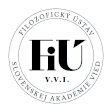Filozofia, 2021, vol. 76, No 9, pp. 688 - 703.
Súbor na stiahnutie: PDF
BibTex
EndNote Tagged
EndNote XML
RIS In his book On What Matters, Derek Parfit defends a version of moral non-naturalism, a view according to which there are objective normative truths, some of which are moral truths, and we have a reliable way of discovering them. These moral truths do not exist, however, as parts of the natural universe nor in Plato’s heaven. While explaining in what way these truths exist and how we discover them, Parfit makes analogies between morality on the one hand, and mathematics and logic on the other. Moral truths “exist” in a way that numbers exist, and we discover these truths in a similar way as we discover truths about numbers. By the end of the second volume, Parfit also responds to a powerful objection against his view, an objection based on the phenomenon of moral disagreement. If people widely and deeply disagree about what is the moral truth, it is doubtful whether we have a reliable way of discovering it. In his reply, he claims that in ideal conditions for thinking about moral questions, we would all have sufficiently similar moral beliefs. However, we often find ourselves in less-than-ideal conditions due to var- ious factors that distort our ability to agree. Therefore, differences in moral opinion can be expected. In this paper, I draw a connection between these parts of Parfit’s theory and comment on them. Firstly, I argue that Parfit’s analogy with mathematics and logic and his answer to the disagreement objection are in tension because there are important epistemic differences between morality and these fields. If one would try to account for the differences, one would have to sacrifice some measure of similarity between morality and them. Secondly, I comment on Parfit’s reply to the disagreement objection itself. I believe that, although his description of ideal conditions has some potential for reaching moral agreement, it may be difficult to tell if ideal conditions prevail. This obscurity spells further trouble for Parfit’s overall theory.
Kontakt
Filozofický ústav SAV, v. v. i.
Klemensova 19
811 09 Bratislava 1
Tel.: +4212 5292 1215
E-mail: sekretariat.fiu@savba.sk
Domovská stránka
IČO: 00166995
DIČ: 2020794149
Korešpondenčná adresa:
Filozofický ústav SAV, v. v. i.
P. O. Box 3364
813 64 Bratislava
Filozofia - redakcia
Filozofický ústav SAV, v. v. i.
Redakcia časopisu Filozofia
Klemensova 19
811 09 Bratislava 1
Tel.: +4212 5292 1215
E-mail: redakcia.filozofia@savba.sk
Domovská stránka
Korešpondenčná adresa:
Filozofický ústav SAV, v. v. i.
Redakcia časopisu Filozofia
P. O. Box 3364
813 64 Bratislava
Organon F - redakcia
Filozofický ústav SAV, v. v. i.
Redakcia časopisu Organon F
Klemensova 19
811 09 Bratislava 1
Tel.: +4212 5292 1215
E-mail: info@organonf.com
Domovská stránka
Korešpondenčná adresa:
Filozofický ústav SAV, v. v. i.
Redakcia časopisu Organon F
P. O. Box 3364
813 64 Bratislava
